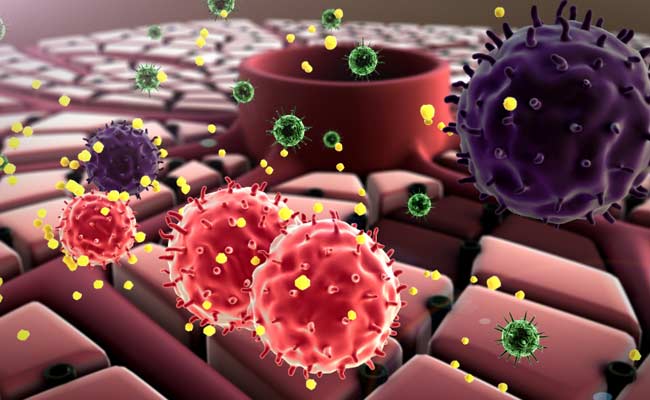Aspergillus lentulus is a species of aspergillus and is a human pathogen that can cause infection in the lungs.

Aspergillus lentulus is ahuman pathogen that can cause infection in the lungs.
Doctors at the All Indian Institute of Medical Sciences have confirmed the presence of a drug resistant pathogen called Aspergillus lentulus in two patients suffering from COPD, as per reports in TOI. "Aspergillus is a fungus which has been known to infect immunocompromised hosts but Aspergillus lentulus is a new species of pathogenic fungi which has been identified or the first time in the Indian patients who died at AIIMS, New Delhi" says Dr Monica Mahajan, HOD, Internal Medicine at Max Hospitals.
Aspergillus, a common mold, is a type of fungus that lives indoors as well as outdoors. According to the CDC, most people breathe in Aspergillus spores every day without getting sick. However, people with a weak immune system or lung disease are at a higher risk of developing health problems due to Aspergillus. People can get aspergillosis by breathing in microscopic Aspergillus spores from the environment. The types of health problems caused by Aspergillus include allergic reactions, lung infections, and infections in other organs.
According to Dr Monica Mahajan, "the main reason for increase in fungal infections is increase in population age, including that of immunocompromised people, there are more and more people who have undergone organ transplant, have chronic disease of the liver, kidney had lung or have been on chemo for various sorts cancer. These patients are more prone to fungal infections. The second reason is the inappropriate and injudicious use of antibiotics, which unfortunately in our country is very rampant. It is so easy to buy any antibiotic over the counter - this isn't the case anywhere else in the world. This usage causes promotion of fungal growth. At the same time the number of species of fungi which cause fungal infections in humans has doubled form 300 to 700 pathogenic fungi and this number keeps increasing. So it is the combination of host factors and infectious agents, which are responsible for new and more virulent forms of fungal infections in human beings. Our choice of anti fungal medication is limited to 3 classes of anti fungal drugs which are not only expensive but have many side effects. Moreover, labs lack identification techniques or tests to identifying fungal infections well in time. The baseline of treating a fungal infection is to start appropriate treatment and start early else mortality is high. So creating awareness, avoiding injudicious use of antibiotics as well as keeping a high level of surveillance is necessary for identifying and treating new fungal infections."
Anyone can get a fungal infection, even people who are otherwise healthy. Fungi are common in the environment, and people breathe in or come in contact with fungal spores every day without getting sick. However, in people with weakened immune systems, these fungi are more likely to cause an infection. Aspergillus lentulus is a species of aspergillus and is a human pathogen that can cause infecton in the lungs. Aspergillus lentulus was first described in 2005 as an opportunistic human pathogen responsible for fatal infections in four hematopoietic stem cell transplant patients that occurred in 2004. Since then, several countries have confirmed infections in humans. And it is the first time this species of Aspergillus has been reported to have infected patients in India, according to doctors.
How Can Aspergillus Infection Be Prevented?
It is difficult to avoid breathing in Aspergillus spores as it is quite common in the environment but for people with a weak immune system, here are a few steps that can be taken to lower chances of developing a severe aspergillus infection.
1. Avoid areas with lots of dust like construction sites or wear N-95 mask.
2. Avoid activities that involve close contact to soil or dust, such as yard work or gardening.
3. Wear gloves when handling materials such as soil, moss, or manure.
4. Wear shoes, long pants, long-sleeved shirt when doing outdoor activities such as gardening.
5. Talk to your doctor for preventive medications
(Centers For Disease Control And Prevention)
(Dr Monica Mahajan, Director, Internal Medicine, Max Hospitals, New Delhi)
Disclaimer: This content including advice provides generic information only. It is in no way a substitute for qualified medical opinion. Always consult a specialist or your own doctor for more information. NDTV does not claim responsibility for this information.
DoctorNDTV is the one stop site for all your health needs providing the most credible health information, health news and tips with expert advice on healthy living, diet plans, informative videos etc. You can get the most relevant and accurate info you need about health problems like diabetes, cancer, pregnancy, HIV and AIDS, weight loss and many other lifestyle diseases. We have a panel of over 350 experts who help us develop content by giving their valuable inputs and bringing to us the latest in the world of healthcare.














